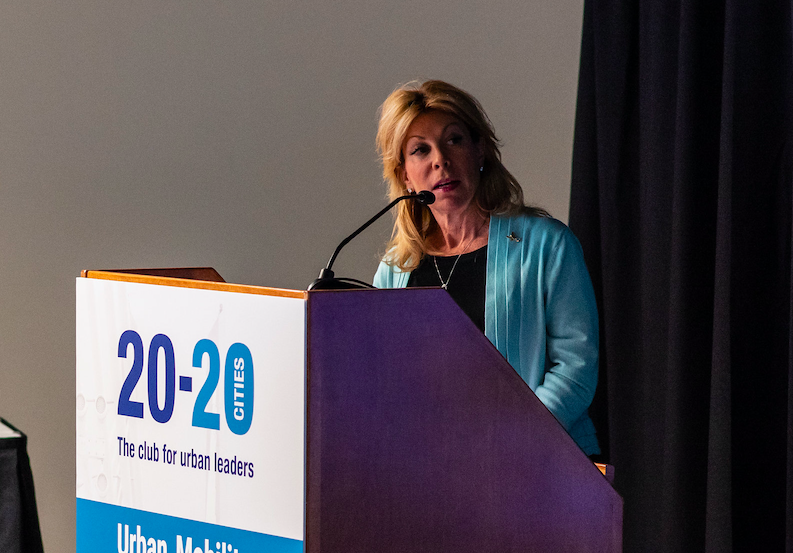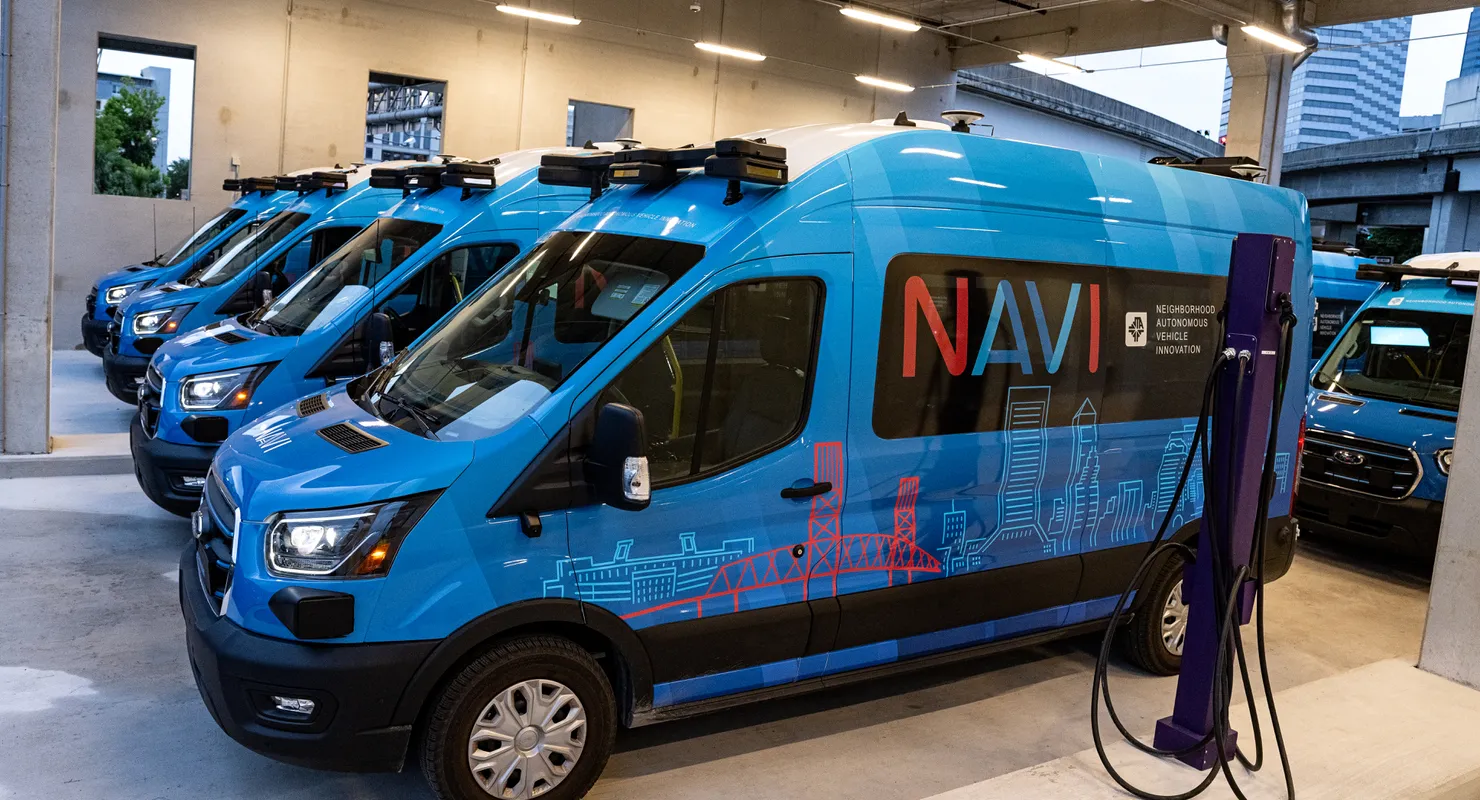
Photo: Screen-Shot-2018-09-19-at-10.58.12
Boston to hire 20 mobility experts
22 September 2018
by Jonathan Andrews
Jonathan Andrews spoke to Gina Fiandaca, Transport Commissioner, Boston, on the sidelines of the 20-20 Cities meeting in Portland, convened by Cities Today
“We are good at planning but we have to be good at doing”
What are the key mobility challenges facing Boston?
It’s a classic case of balancing and finding a way to address our challenges around growth and lack of investment in public transit.
You said here at the 20-20 Cities meeting in Portland that it is the role of government to develop trust in private operators that are innovating in the mobility space. How can cities build trust in those operators?
It’s really about centring around the innovation arena. We see scooters and dockless bikes coming in, and automated vehicles and technology. Who knows what else is on the horizon? We know that the private sector is great at innovating. Meanwhile, we have access to some of the best intellectual property in the world with our educational institutions in Boston. Some operators have already partnered with us on autonomous and automated vehicles. Our role is to be partners with them and identify what need we are filling and how we can build the public’s confidence that what we are endorsing will actually be safe, reliable, and equitable.
Boston’s mayor, Marty Walsh, is hiring 20 more people in transport. Could you tell me more about that impetus and what their functions will be?
The mayor has made Go Boston 2030–and transit in general–one of his number one priorities. Our population is expected to grow by over 100,000 people over the next couple of decades, and we know that in order to achieve our housing goals, people need to move around in different ways. We need to have the organisational structure and support and capacity to manage that. The mayor has made investments in transportation and mobility in general and we have 20 new positions that are centred around Go Boston 2030.
We are hiring a coordinator to work with transport network coordinators [TNCs] and with some of these innovators around scooters and bicycles, looking at how we integrate that into our existing transportation networks. We are going to hire a transit team to work with the MBTA [Massachusetts Bay Transportation Authority] because we are not in charge of that, that is a state authority. There is certainly an appetite for bus lanes and bus transit in Boston and we have seen success with our bus corridor. There are more on the horizon that are in Go Boston 2030.
We want a team that can work with the MBTA and identify where it makes sense to place bus corridors and how we actually do that. We are good at planning; we have to be good at doing. A lot of that has a data component to it: the before and after accounts to see what we need to do, how do we do it, and how we are going to be successful at doing it.
A lot of cities are looking at reducing parking and implementing curbside regulations. What is your strategy to get small businesses on board with that?
A lot of direct outreach through the old fashioned way of going to see these small businesses and working with them. We want them to be successful. They are the fabric of our community and a lot of what we are doing is building neighbourhoods where people shouldn’t have to go too far to buy their groceries or other needs. We want to support them. Sometimes it’s a tough sell to change parking regulations. Parking is very emotional and I think that a lot of us forget that. It’s a lot of personal outreach, and going to visit them and identifying what their loading zone needs are and what their employee needs are. That is a big factor for small businesses.
What have been the main takeaways for you from this meeting?
If you look at a small city like Altamonte Springs or Milwaukie in Oregon and you look at Houston, we all have the same issues, just on a different scale. There are a lot of good takeaways from Altamonte Springs, a lot of good of takeaways from Houston. What was great about this meeting was that it brought in some of the private sector partners and it wasn’t a sales pitch. It was almost like a seminar or educational workshop, figuring out how they [the private sector] can actually help us do our jobs better.







